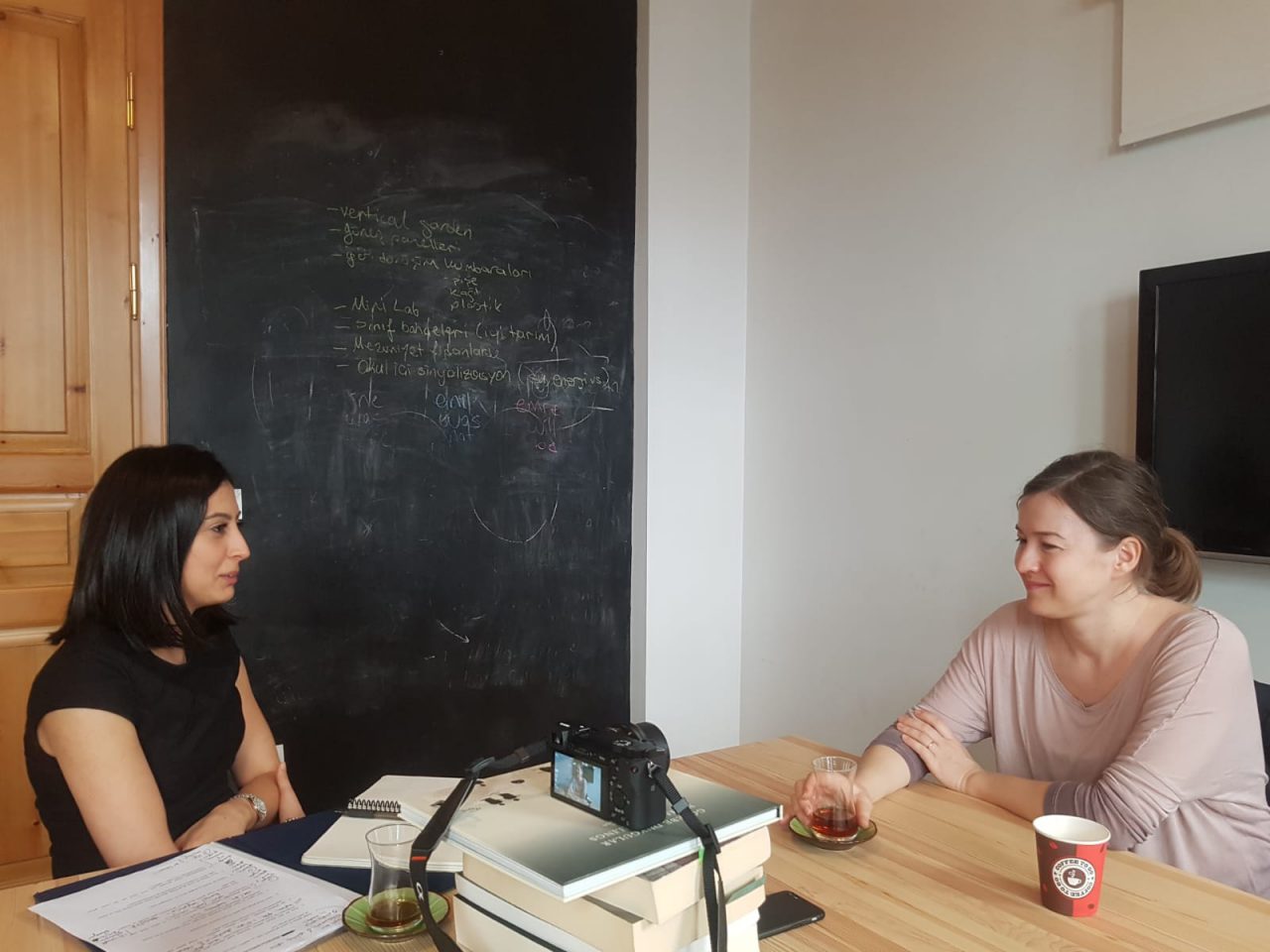Agata Fortuna (KUSIF): “Turkey Has So Much Potential In Social Entrepreneurship”

While we have just embraced the terms “entrepreneurship”, “enterprise” and “start-up” and begun to consider “entrepreneurship” as an honorable profession, we have discussed with Koç University Social Impact Forum (KUSIF)’s Project and Training Officer Agata Fortuna a new term that we begin to hear often in recent years: “Social Entrepreneurship”.
As KUSIF, is there a definition you look for when you hear the term “social enterprise”?
We pay attention to the characteristics of social enterprises rather than giving an exact definition. In our view, social enterprise offers a systematic and innovative solution to a social problem, has a sustainable business model and creates a measurable social impact in society through the product and / or service it produces. These three features describe us what is a social enterprise.
Can we say it is a social enterprise if any institution with a social purpose starts to generate income?
Not every institution with a social purpose, for example, if an existing civil society organization develops a revenue model and starts to engage in economic activity, whether or not to call it social enterprise is highly argumentative. Funding its activities by selling any product does not directly make it a social enterprise. Social enterprises bring innovative and sustainable solutions to social and environmental problems, and in doing so, builds a business and revenue model to increase the mission and impact to make such solution sustainable. When we look at the exemplary social enterprises, we see that they create systemic change with innovative and sustainable solutions they offer at local, national and international level. If any institution with a social purpose sets up income generating activities in this way, then we can call it a social enterprise.
Where do you think social enterprise fits in the scale of the private sector and civil society?
We can say, formerly there were private sector and civil society organizations, the private sector was profit-oriented, and civil society organizations were not engaging -in general– in any profit or revenue-generating activity. Now, social enterprise has created a third area between these two. Social enterprise has elements from both the private sector and civil society; it has connections with both and begun to fill a middle area.
You work with young people in KUSIF, how is the view of young people regarding this social entrepreneurship?
What we see in KUSIF is that the next generation wishes its work to be meaningful. We offer social entrepreneurship courses at the university, students wish to work in this field. There are too many of them saying “I really want to believe in my work, I want it to benefit the community and the society”.
As you know UK is one of the pioneers in the field of social entrepreneurship, and UK says most of the newly established companies will be established as a social enterprise after 2020. That is a whole new dimension to imagine for our current situation in Turkey but why would not it happen here sooner or later as well? It is because each country has its own problems, and social entrepreneurship is a method of intervention to these problems. If we consider the capacity of youthful population and the number of problems we have in Turkey, then we can confirm that Turkey has too much potential in the field of social entrepreneurship.
Do you have any social enterprises that you are personally interested in?
For sure. For instance, I have just recently bought a product from Sarıyer Women’s Cooperative (Sarıyer Kadın Kooperatifi) through Good4Trust.org, I rather liked it. I find the awareness created by Adım Adım incredibly valuable in respect of donation and volunteering and I follow them with pleasure. Due to my work at KUSIF, I also had the opportunity to visit different cities in Anatolia such as Gaziantep and Kayseri, small-scale social enterprises and entrepreneurs working locally really impressed me, they are doing incredible work locally. For example, there is one that participates in one of our programs: Harmoni Women Cooperative (Harmoni Kadın Kooperatifi). They have pretty nice products, I find them quite successful.
As KUSIF, you work with a lot of enterprises in this field, do you think social enterprises have problems in terms of reaching volunteers and / or experts?
I think there are very few people in this area who can give volunteering or pro-bono expertise support to social enterprises. Experts need to know and understand what social entrepreneurship is. Within the scope of our projects, we have tried to bring social entrepreneurs together with experts from different sectors, but sometimes the return we get from social entrepreneurs was like, for example, in relation to a marketing expert who knew the private sector well but didn’t know social entrepreneurship enough and his suggestions or support did not fit well to our entrepreneurs, simply because he does not know the social enterprise sector. Therefore, it is difficult to find a mentor who can support them by understanding the needs of social entrepreneurship. I suppose today’s social entrepreneurs will be the experts of tomorrow, and we hope that future social entrepreneurs will not experience this problem we mention for today.
Plus, this is the situation in the cities like Istanbul and Ankara, it is even harder to find support and network in other cities. Social entrepreneurs know each other in Istanbul and Ankara where access to know-how is relatively easier. There are many different actors, knowledge and experiences, but outside of these big cities, there is no entity that can provide information and or any sort of support to social enterprises. For this reason, we are currently conducting the Social Entrepreneurship Network Project (Sosyal Girişimcilik Ağı Projesi) aiming to strengthen the local actors and entrepreneurs.
Last but not least, we know that sustainability is a goal for social enterprises, what do you propose to the social enterprises you work with at KUSIF in order for them to ensure sustainability?
They need to develop a decent business model. We tell this to students that come to us: Social entrepreneurship can be twice as difficult as normal entrepreneurship, because you need to think about both the size of your business and profitability, as well as your social impact, and you have to pay attention to both. You need to expand your business by increasing your social impact with the business model you develop. At the beginning of the path, you can survive by collecting more grants and funds, but after a certain stage, sustainability should be your ultimate goal. It is important to disseminate this consciousness and ensure that it is well established in social entrepreneurs. We even have a publication at KUSIF that serves this purpose: Sustainable Social Enterprise Samples (Sürdürülebilir Sosyal Girişim Vakaları) where we have discussed in detail the revenue model of social enterprises established financial sustainability in Turkey, so that other social entrepreneurs and / or others interested in this field can take it as an example.
On the other hand, it is also useful to say that sustainability is not just related to your income model or your financial condition, or it should not be. Your social impact must be sustainable too, because the main purpose of social enterprise in the first place is to create and maintain that social impact and social benefit. We are trying to settle this awareness in the enterprises and students we work with at KUSIF. There is another publication that we have created to this end: Maximise Your Impact: The Guide of the Social Entrepreneur (Etkinizi Zirveye Taşıyın: Sosyal Girişimcinin Rehberi). We believe that these two guidelines are very valuable taking into account that there is a limited number of written sources in Turkish in the field.


Bizi Takip Edin